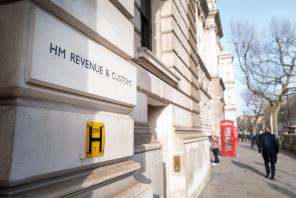

Guidance published by HM Revenue & Customs yesterday (January 20) explained how changes to the loan charge would be implemented, noting those levied with the charge had a number of options and should therefore “seek professional advice”.
The instructions come after an independent review into the loan charge found the tax man had “gone too far”, prompting the government to accept a series of recommended changes put forward by the report.
Under the changes the loan charge will only apply to loans taken out on or after December 9, 2010 as the review found legislation announced at that time “removed any doubt” that the tax was due.
This means the loan charge will no longer apply to users of loan schemes between December 9, 2010 and April 5, 2016 who fully disclosed their schemes on their tax return, which HMRC then failed to take action on.
Consumers still levied with the loan charge will be allowed to defer their filings and loan charge liability until September 2020 and can split the loan balance over three tax years to make the bills more affordable as part of the changes.
This means those levied with the charge can spread their loan balance evenly over 2018-19, 2019-20 and 2020-21.
But yesterday HMRC noted it would not be beneficial for some loan scheme users to elect to spread their loan balance over three years, urging consumers to consider their options and get professional advice.
Those who wish to spread the costs are required to request to do this using an additional information form, which will be available from April, by September 30, 2020.
Loan scheme users who think they disclosed their scheme use properly on their tax returns have been urged to check their copy of the return to see if the disclosure meets the requirements — using a disclosure of a tax avoidance scheme number or an explicit referral to the scheme.
HMRC has urged those who received loans in the tax year 2010-11 to check their bank statements and loan agreements as loans received before December 9 2010 are no longer levied with the charge, while those who are definitely no longer within the scope of the loan charge are not required to take any action.
The loan charge relates to people who worked and received their remuneration through loans, which are not taxable, rather than a salary, which is. The loans were never intended to be repaid resulting in the tax office treating them as tax avoidance, although the loans were legal at the time.
The loan remuneration structure was considered above board for the years it was used until HMRC clamped down following the bankruptcy of Rangers FC, which had been operating a similar scheme.
This led to widespread action and the process was outlawed, but HMRC also applied the law to past cases and was initially pursuing people who used a loan payment scheme as far back as 1999.
HMRC has since reported itself to the police watchdog at least four times over the deaths of individuals notified of a loan charge bill.
imogen.tew@ft.com
What do you think about the issues raised by this story? Email us on fa.letters@ft.com to let us know.



